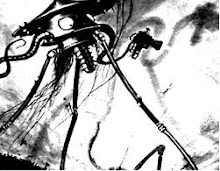Don't Punish Legitimate Customers
Yet, that is exactly what entertainment industries do when they implement intrusive and inconveniencing DRM schemes. Rob Fahey, of GamesIndustry.biz, wrote a few months ago:
The response from the videogames industry to piracy has, thus far, been utterly asinine. Not, of course, that videogames should be singled out here -- the music and movie businesses, too, have done their fair share of asinine things in the last five to ten years as they desperately struggle to understand the changes which internet piracy is causing to their market. Only the music business, which has been struck hardest by online, user-driven piracy, has begun to learn its lesson and adapt its business intelligently. It remains to be seen whether movies and games are condemned to repeat the same costly mistakes, or whether they can learn from their sibling industry and avoid the traps.Another key thing that Fahey mentions, regarding music, is this:
The core of the response of both games and movies (although our focus here is on games, obviously) to internet piracy -- the response which leads me, with absolute confidence, to describe these efforts as being asinine -- is to treat their legitimate users as though they were criminals. Almost every single effort which has been made by these industries to protect their products has had the result of inconveniencing, frustrating and disenfranchising honest, paying customers.
[...]
There will always be a core of people who can't or won't pay for things, and who will go to incredible lengths and inconvenience themselves awfully just in order to get stuff for free. However, it's a stupid and useless dogma to claim that all piracy happens because of that impulse. The reality is that when pirates are offering a better user experience than you are, your business model is broken -- and rather than punishing your loyal customers, or whinging to national governments in the hope that they'll cover your backside with unpopular, civil liberties infringing legislation, you need to fix your business model. Or find a new job. [emphasis mine]
Lo and behold, consumers aren't actually against paying reasonable prices for music - they're just against having to go out and buy CDs with spyware on them, or having to download tracks that are crippled, locked up and liable to be unplayable as soon as the company you bought them from goes bust. [emphasis mine]This is exactly the problem with the new trend of game developers requiring gamers to be connected to the internet to play their games. What happens when the developer goes out of business? What happens when the publisher and/or developer cease to support their older titles? The only conclusion I can draw is the same one that Fahey draws -- the games will be unplayable, utterly useless.
I recently installed Company of Heroes: Opposing Fronts. This is an expansion to the first game, Company of Heroes. The Opposing Fronts expansion pack came with some hefty DRM, unlike the original game, which came DRM-free. It took me several hours to install the game simply because of the DRM. My experience was one of frustration.
First, the expansion required that the original game be uninstalled before installing the new DRM-laden expansion. OK, did that, no problem. The expansion took a very long time to install, even on my Intel Core 2 Quad Q6600 processor. After installation, I went to run the game, but was unable to do so because of a required patch installation to play online. I wasn't even interested in playing online; however, I was required to install the patch to play at all. Every time I tried the in game patching process, the game failed to connect to the internet and download the patch (and yes, I had created a firewall exception for Company of Heroes). I was forced to shut the game down and hunt for the patches online (which wasn't easy), download them individually (there were at least a half-dozen), and install each patch individually.
After I had completed this time-consuming endeavor, I opened up the game again. This time, I was prompted to log in with a user name and password in order to play the game. The DRM with this expansion required either the DVD in the drive or an internet connection to play. I had my DVD in the drive, so I was a bit puzzled why the game would require me to create a login. But even this didn't work correctly -- the button to "create" a profile was shaded, meaning that I couldn't access the profile creator in-game. I was forced, yet again, to shut down and create my profile on the developer's website and then start the game back up again. Finally, many hours later, I could play!
To a more casual player, it's likely that s/he would have given up at some point during this ordeal. Perhaps this person would recommend to friends that the game isn't worth the time it takes to install. Perhaps this person is now less likely to buy a future title from the developer. Perhaps this person is likely to return his/her legal copy and instead download a pirated copy because the pirated copy is easier to install. Perhaps this person is now more likely to pirate future games from this developer. Company of Heroes has plenty of pirated copies available on the internet, so all this DRM has done is inconvenience a legitimate customer, potentially encourage a former legitimate customer to pirate games, and/or drive away a legitimate customer from PC gaming to more convenient, legal gaming systems like consoles (PS3, XBox 360, Wii).
Further reading: Cory Doctorow's DRM talk, which discusses all of these issues at great length.



No comments:
Post a Comment